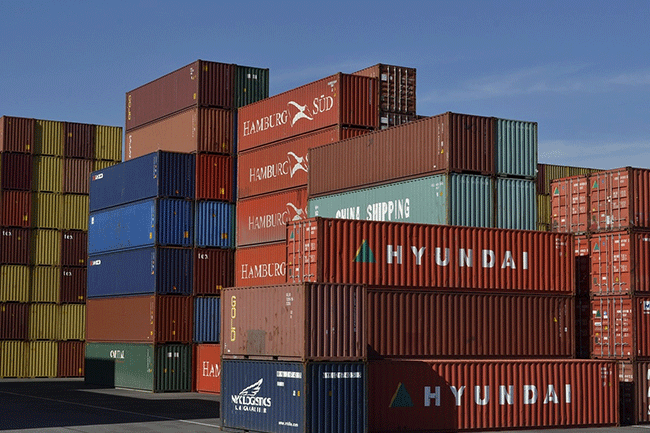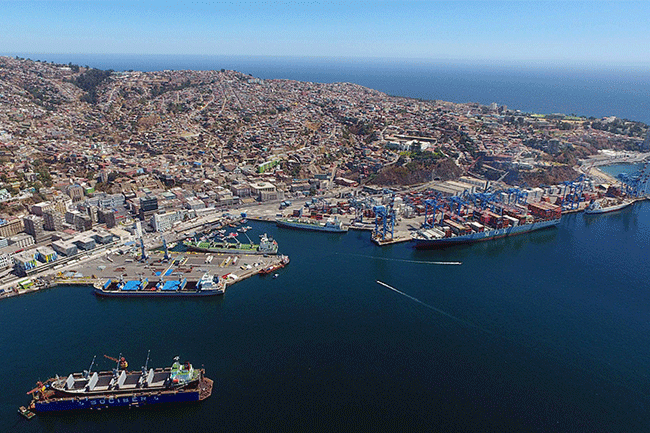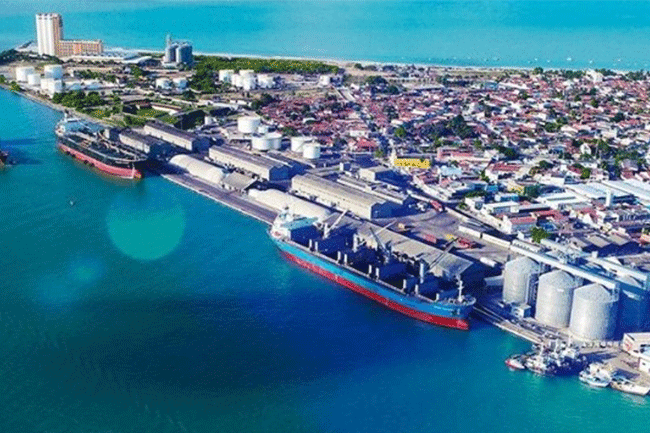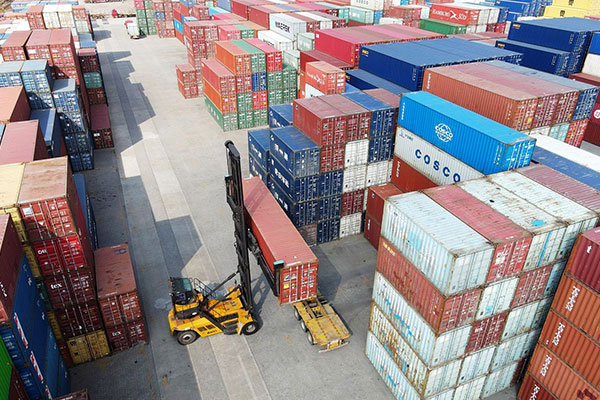- Shanghai Zhongshen International Trading Co., Ltd. – Your reliable partner with 20 years of import/export agency service expertise.

I. Opportunities for New Zealand Biscuit Imports under the New Landscape of International Trade
In recent years, as Chinese consumers’ demand for high-quality imported foods has kept climbing, New Zealand biscuits—carrying the tagline “natural ingredients + stringent quality control”—have secured a significant share of the bakery market. Customs data show that from January to October 2023, New Zealand’s biscuit exports to China rose 18.7 % year-on-year, mainly thanks to the tariff concessions under the upgraded China-New Zealand Free Trade Agreement (FTA) that cut the duty on some biscuits to 0 % starting in 2022, as well as the domestic surge in “healthy snacking.” However, global supply-chain disruptions (e.g.Maritime transportPrice volatility, port congestion), increasingly stringent trade-compliance requirements in various countries (e.g., China’s “Regulations on the Registration Administration of Overseas Food Production Enterprises for Import”), have left companies facing challenges such as complex documentation and high logistics risks when importing on their own, professionalImport Agent ServicesThe value of services is becoming increasingly prominent.
II. Core Competencies of Import Agency: Document Processing and End-to-End Logistics Control
(I) Document processing: the key to ensuring “consistency across documents and between documents and certificates”
Documentary compliance for imported biscuits is the foundation of successful customs clearance; the broker must exercise end-to-end control over 10+ categories of core documents:
- Basic Commercial Documents: Commercial invoice (must state the trade term such as CIF/FOB and the VAT-inclusive price), packing list (showing the weight and dimensions of each carton, consistent with the “gross weight/measurement” on the bill of lading), bill of lading (for ocean freight: MBL/HBL),Air freightFor AWB, the shipper/consignee information must be verified);
- Certificate of Origin and Quality: Issued by the New Zealand Ministry for Primary Industries (MPI)Origin Certificate(FORM E, essential for FTA tariff preferences), Sanitary Certificate (certifying compliance with New Zealand food standards), Ingredient Analysis Report (must list types and quantities of additives, corresponding to China’s GB 2760 standard);
- Special Requirements Document: Production date/shelf-life certificate (must show the specific batch and correspond to the Chinese label “production date see packaging”), non-GMO statement (if applicable).
The professional value of the agent is reflected in: pre-audit of document logic (e.g., invoice amount vs. contract amount deviation ≤5%), guidance on supplementing missing documents (e.g., a health certificate missing the MPI official seal must be re-signed), and cooperation with customs “document verification” (e.g., for biscuits under HS code 1905.3100, checking whether the “sugar content ≤25%” in the ingredient report matches the tariff description), thereby avoiding returns or demurrage caused by document discrepancies (demurrage is usually about USD 100/day).
(II) Logistics Services: Full-chain optimization from “port to door” to “door to door”
The logistics stage must balance speed, cost, and risk; the forwarder tailors the plan to cargo characteristics (e.g., biscuits are fragile and require reinforced cartons plus cushioning fill) and customer needs:
- Selection of transportation methods: Small-batch, high-value shipments (e.g., trial orders ≤200 kg) are recommended to go by air (transit time 5–7 days, cost roughly USD 8–12/kg); large-volume cargo (≥1×20' container) should preferably move by full-container-load sea freight (FCL, transit time 25–30 days, cost about USD 1,500–2,000 per 20GP), while less-than-container-load (LCL) suits scattered orders (cost-shared, but watch for devanning loss at destination).
- : Require the agent to purchase liability insurance of at least 5 million yuan: Under CIF terms, the agent must insure “All Risks + Breakage” (premium ≈ 0.3%–0.5%), covering risks such as moisture and compression during transit;
- Customs Clearance Coordination: Transmit the “manifest information” to Customs 3 days in advance to ensure that the “Single Window” declaration is completed before the cargo arrives at the port. Given that biscuits are prone to “animal and plant quarantine” spot-checks, prepare the Chinese labels in advance (they must show “Country of Origin: New Zealand”, “Importer Information”, etc.) to avoid on-hold detention due to non-compliant labels during inspection (rectification usually takes 3–5 working days).
III. Expansion of Business with Russia: VTBConvert foreign exchange into RMBSafety and Efficiency Advantages of
If the customer’s imported New Zealand biscuits involve re-export to Russia or direct settlement with Russia, the agent can provide VTB Bank (Sberbank of Russia, a top-20 global bank) foreign-exchange settlement services, solving the pain points of traditional cross-border payments:
- Policy Adaptability: VTB, as a major Russian state-owned bank, has established direct clearing channels with leading Chinese banks (such as ICBC and Bank of China), enabling it to bypass the risk of SWIFT system restrictions;
- Settlement efficiency: T/T payments processed through VTB now arrive within 1–2 business days (the traditional correspondent-bank route takes 3–5 days);
- Compliance guarantee: VTB strictly complies with the anti-money-laundering regulations of both China and Russia; agents can help verify the authenticity of the trade background (e.g., by supplying contracts and logistics documents) to reduce the risk of account freezing.
Take a certain client’s exports to Russia as an example: processing a US$100,000 payment through VTB saved four days compared with traditional channels and avoided Russian demurrage charges of roughly US$500 per day caused by payment delays.
IV. Compliance Boundaries and Risk Warnings: Certification Requirements and Scope of Agency Services
Please clearly inform the customer that imported biscuits must meet the following certification requirements (the agent does not handle them directly but provides guidance):
- Registration of overseas production enterprises: New Zealand biscuit factories must complete registration in the GACC “Registration Management System for Overseas Food Production Enterprises” (MRN) (the enterprise registration number can be queried through the official website);
- Domestic Standard Compliance: A test report issued by a third-party body such as SGS or CCIC must be provided, certifying compliance with GB 7100 (Hygienic Standard for Biscuits) and GB 28050 (General Rules for Nutrition Labeling);
- Chinese label filing: The label must be approved through the "Imported Food" system before importation.CosmeticsSubmit for review in the “Label Filing System” (agents may assist in checking label elements but are not responsible for filing).
The role of the agent is to: verify the registration status of the manufacturing enterprise (to prevent the return of products from unregistered firms), guide testing items (e.g., focus on aflatoxin B1 ≤5 μg/kg), flag common labeling issues (e.g., missing “Storage conditions: room temperature and dry”), and help clients avoid customs clearance failures caused by missing certifications.
V. Full-Process Agency Service Explained: Closed-Loop Management from Consultation to Feedback
1. Customer Consultation: Needs Diagnosis and Service Positioning
The agent clarifies customer requirements (e.g., annual import volume, target market [supermarket/e-commerce], budgeted cost) through questionnaires and interviews, rules out “prohibited or restricted” risks (e.g., biscuits containing endangered ingredients), and defines the service scope (whether logistics is included, whether Russian payment settlement is involved).
2. Negotiation & Contracting: Clause Review and Risk Allocation
Focus on reviewing the “quality clause” in the contract (e.g., “broken-cake rate ≤ 3 %”), the “payment method” (recommend T/T 30 % deposit + 70 % against copy of B/L to avoid high L/C fees), and “dispute resolution” (stipulate application of PRC law and choose arbitration over overseas litigation) to safeguard the client’s interests.
3. Orders & Payment: Fund Security and Currency-Hedging
The agent assists the client in confirming order details with the New Zealand supplier (e.g., packaging specs: 200 g/box × 12 boxes/carton), hedges exchange-rate volatility—up to ±5 % in 2023 for CNY/NZD—via “FX-lock tools” such as forward FX contracts, and executes cross-border payments at settlement through VTB (Russia-related business) or major domestic banks (regular business).
4. Production Supervision: Quality Control and Progress Tracking
Commission SGS to carry out pre-shipment inspection, focusing on verifying raw-material traceability (e.g., milk powder sourced from Fonterra, New Zealand), additive usage (e.g., preservative potassium sorbate ≤1.0 g/kg), and package integrity (via vacuum-leak testing), and provide the inspection report as the basis for payment.
5. Customs Compliance: Pre-clearance Declaration and Tax & Duty Calculation
Pre-classify the HS code (e.g., sandwich biscuits under 1905.3200, 0% duty; ordinary biscuits under 1905.3100, 0% duty), calculate import taxes (VAT = (CIF value + customs duty) × 13%), file the customs declaration in the Single Window system (upload the “Importer of Record number for food”), and cooperate with customs inspection (in 2023 the biscuit inspection rate was roughly 8%, focusing on labeling and sensory characteristics).
6. Delivery & Distribution: Domestic Shipping and Inventory Management
After customs clearance, the agent completes the “port–warehouse–customer” delivery through partnered logistics providers (e.g., Sinotrans, SF Express), offers the value-added “warehousing & drop-shipping” service (e-commerce clients can, for instance, move goods directly into Cainiao warehouses with one-piece drop-shipping support), and feeds back logistics information such as estimated delivery time and signed-for photos.
7. Quality Assurance and Summary Feedback
After the goods are delivered, the agent assists the customer in completing the entry into the “Imported Food Information Traceability Platform” (upload of customs declaration and inspection & quarantine certificate required) and provides the “Full Import Process Report” (including cost analysis, time statistics, and issue log) to help the customer optimize future import plans.
Conclusion: Importing biscuits from New Zealand may look complicated, but with a professional agent handling documentation, streamlining logistics, and guiding compliance, operational risk and time cost can be sharply reduced.Zhong Shen International Trade Co., Ltd.As a senior consultant with 20 years of experience in theExport Agent ServicesA 20-year service provider, always aiming for “zero documentation errors and zero logistics delays,” helping businesses efficiently connect with premium food resources worldwide.
Related recommendations
? 2025. All Rights Reserved.










